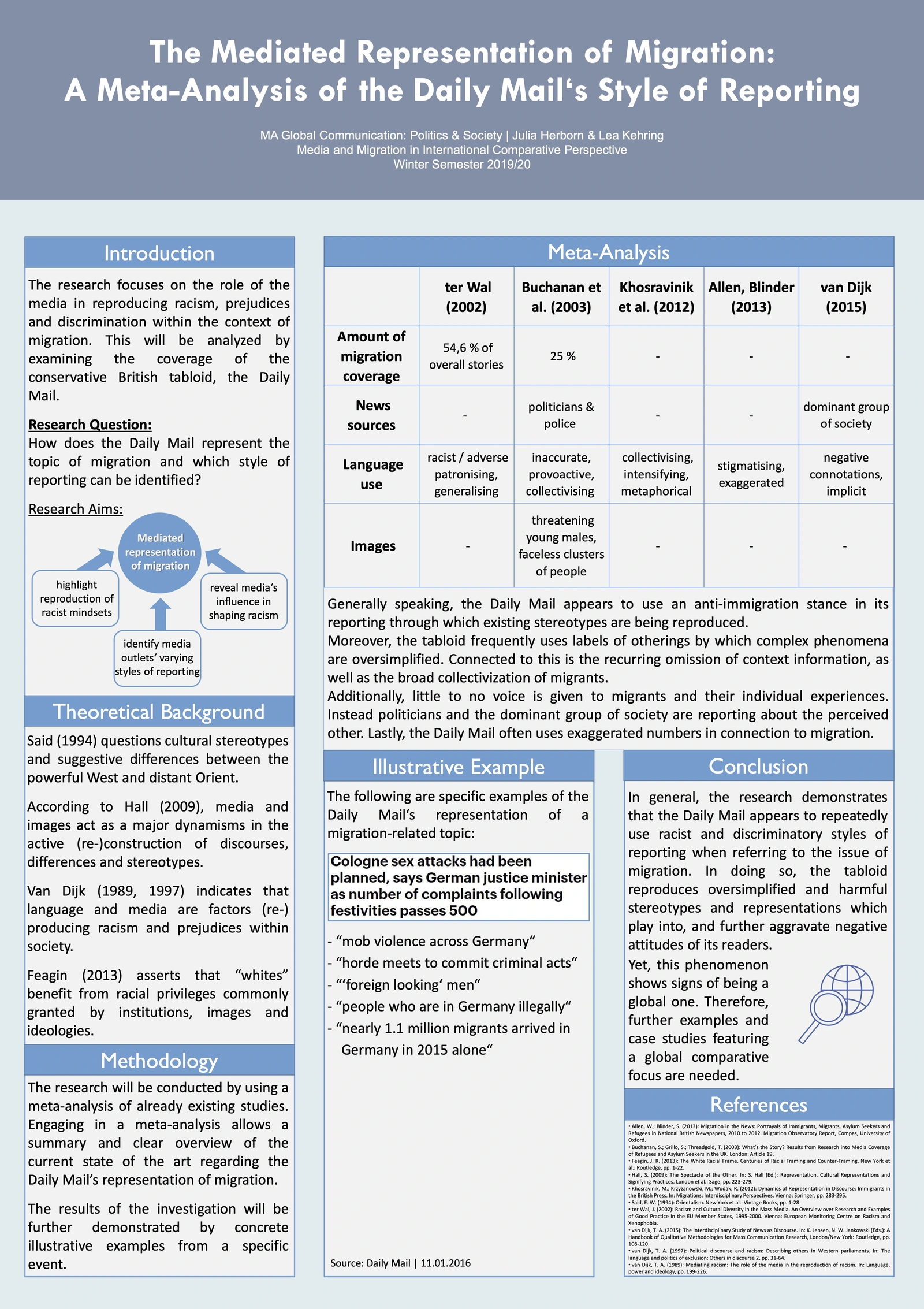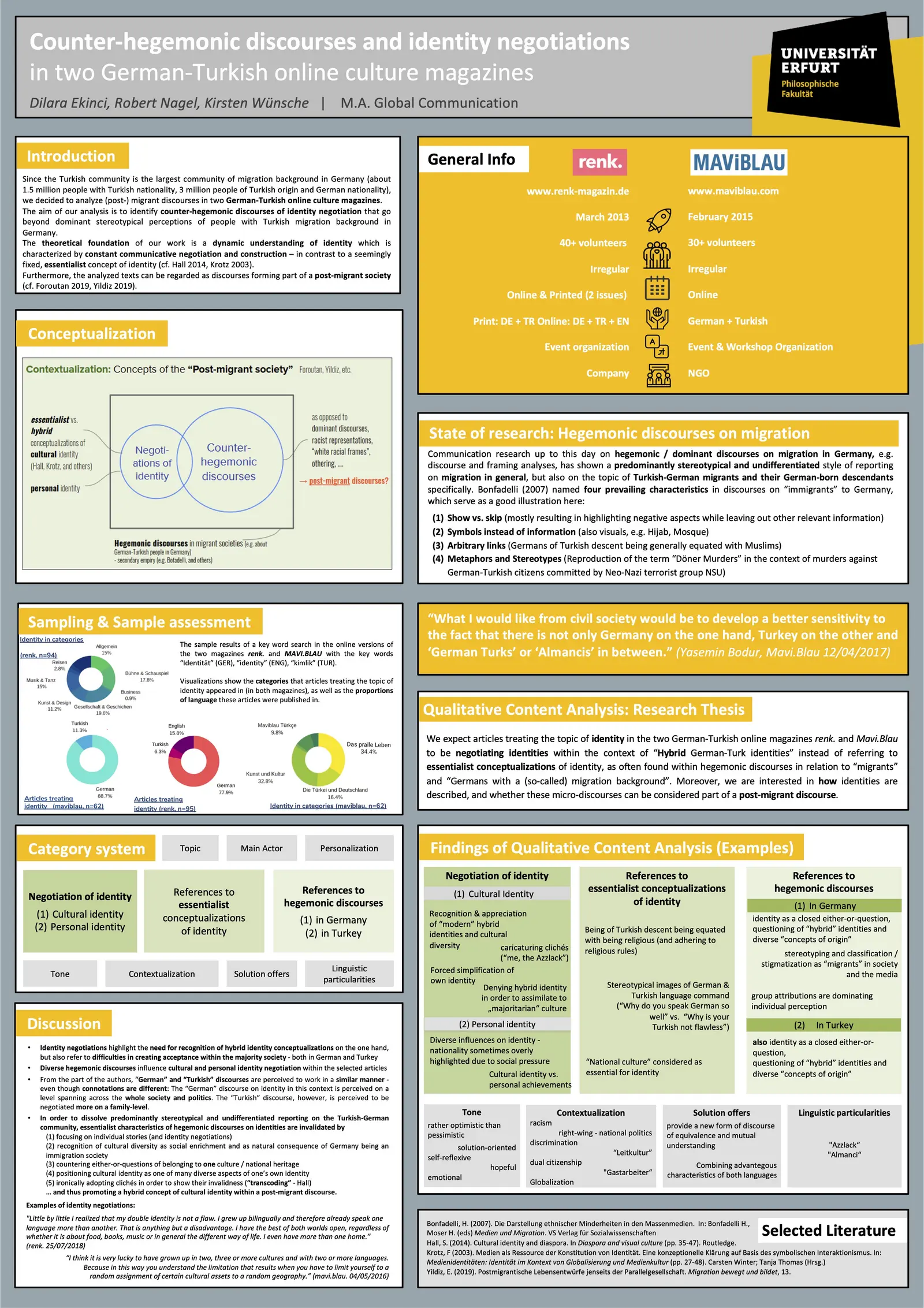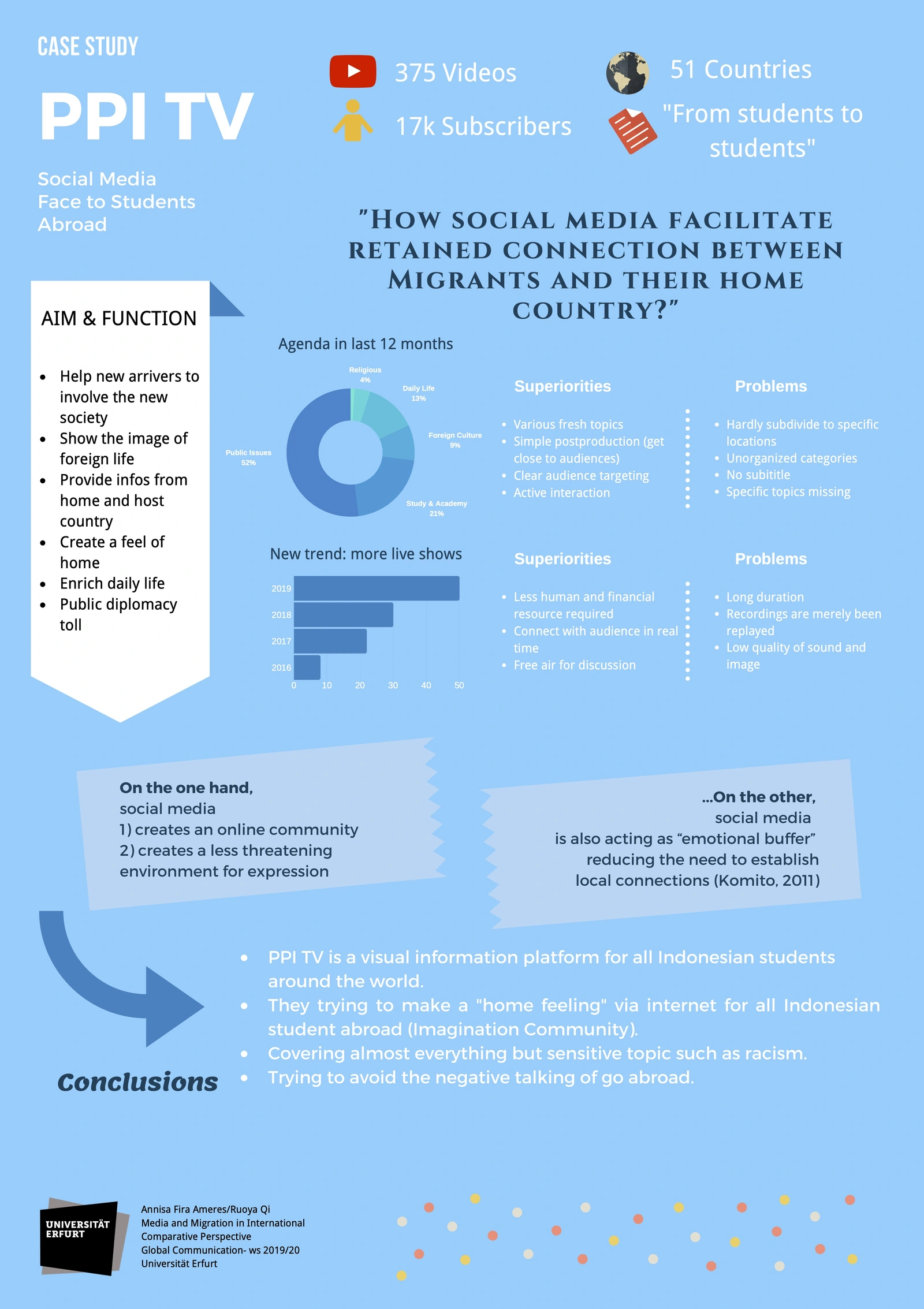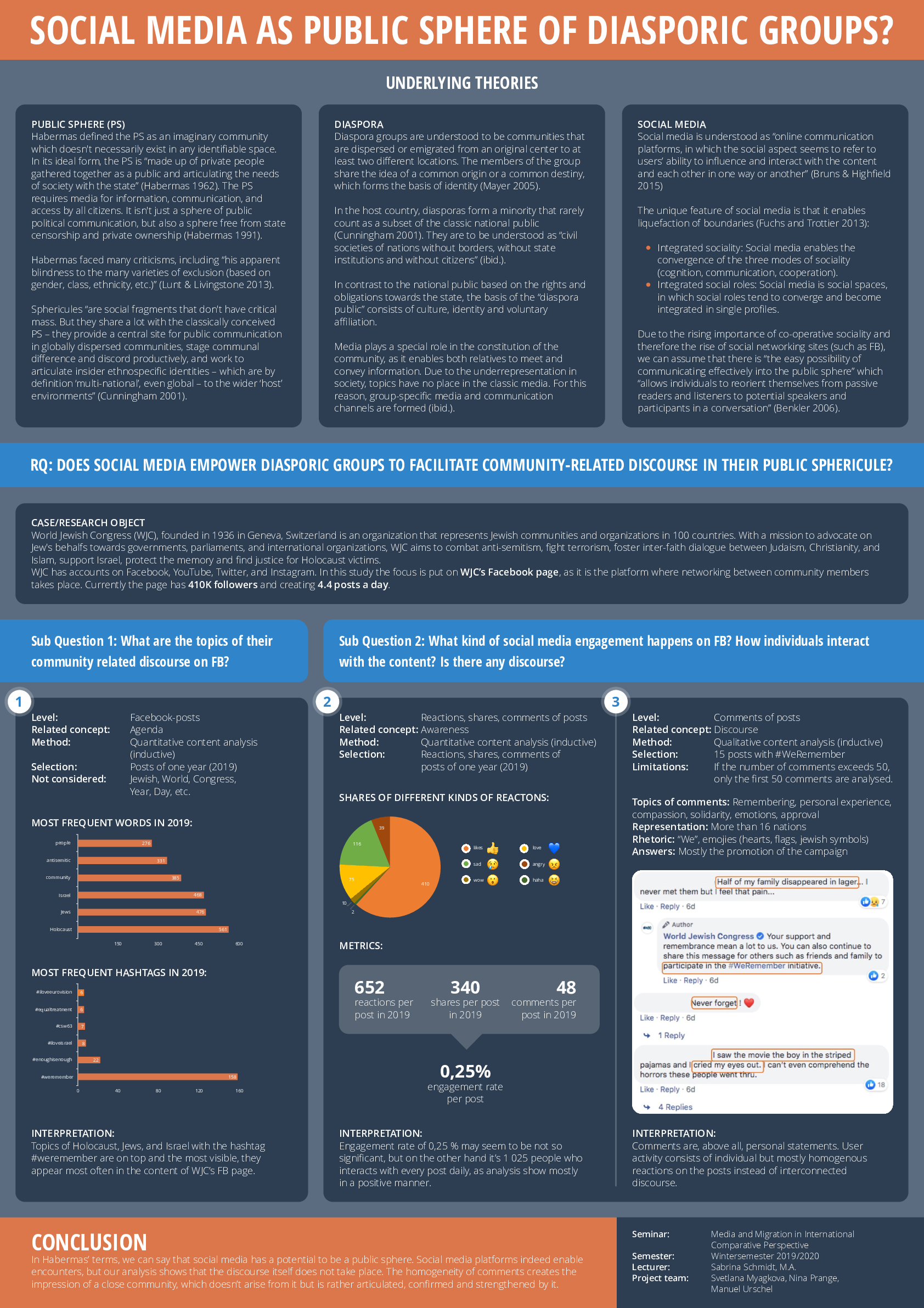Community-related discourse in Social Media diasporic public sphericules
Svetlana Myagkova, Nina Prange and Manuel Urschel
"This study examines the potential of social media as a communicative channel to facilitate community-related discourse in diasporic public sphericules. Indeed, in Habermas’ terms, we can say that social media has the potential to be a public sphere enabling social encounters. However, our analysis shows that the discourse itself does not take place – the homogeneity of comments creates the impression of a close community, which doesn’t arise from it but is rather articulated, confirmed, and strengthened by it."
Meta-Analysis of the UK Daily Mail's Style of Reporting on Migration
Lea Kehring and Julia Herborn
"The research focused on the media's role in reproducing racism, prejudices and discrimination within the context of migration. This was done by appyling a meta-analysis of five existing studies on the Daily Mail's representation of migration, as well as applying an illustrative example of the tabloid's coverage of a specific migration event."

(Re-)Presentation of Migrants in German media
Antonia Hafner and Sabrina Haßloch
"With a 25,5 percent share of people with a migration background, Germany is one of the largest immigration countries in Europe. Looking at the proportion of journalists with a history of migration, however, the discrepancy with the migrant population is astonishing: only about three percent of media workers come from a non-German background. This discrepancy caught our interest and led to an analysis on how people with a history of migration are presented and represented in German media and what measures support an intercultural media integration. We concluded, that a successful cultural media integration requires the majority to be informed about minority issues. At the same time, minorities are required to use majority media as well. The hurdles are enormous for all aspiring journalists, but particularly affect people with a history of migration. Initiatives such as the Neue Deutsche Medienmacher make a positive, crucial contribution to the diversification of the German media landscape."

Counter-hegemonic discourses and identity negotiations in two German-Turkish online culture magazines
Dilara Ekinci, Robert Nagel, Kirsten Wünsche
"The Turkish community is the largest community of migration background in Germany (about 1.5 million people with Turkish nationality, 3 million people of Turkish origin and German nationality). We decided to analyze (post-) migrant articulations in two German-Turkish online culture magazines while looking at characteristics of identity negotiation within selected articles."

Social Media in Diasporic Student Communities: A Case Study of PPI TV
Annisa Fira Amares and Ruoya Qi



